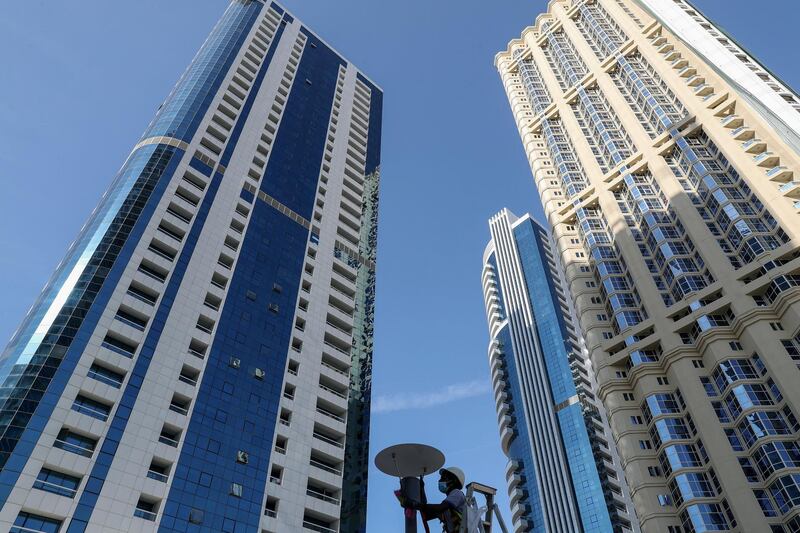"Mid-market" properties were the only price category of the Dubai residential market for which online searches on UAE marketplace dubizzle.com that rose this year, indicating continued growth in demand for “affordable” housing amid flat market conditions and increasing supply.
The proportion of dubizzle.com searches for mid-market properties – those cheaper than Dh1,000 per square foot – increased to 66 per cent of all property searches on the platform in September 2017, up from 42 per cent in September 2016, according to dubizzle.com and property consultancy JLL’s End of Year Property Report focusing on the Dubai residential market.
Mid-market properties accounted for 57 per cent of all property advertisements on dubizzle.com during the month, compared to 52 per cent last September, the report added.
“The most significant changes in the structure of the market during 2017 have been the growth of off-plan sales and a continued focus on the affordable or mid-income sector,” said Craig Plumb, head of research at JLL Mena (Middle East and North Africa).
In stark comparison, the proportion of searches for properties in the Dh1,000-1,500/sq ft bracket dropped by 13 per cent over the year and 3 per cent for the Dh1,500-2,000/sq ft bracket, with the proportion of listings also dropping for these brackets, by 1 per cent each.
_______________
Read more:
Dubai's rental index updated for 2018 and now includes land
Abu Dhabi residential rents decline 11% in third quarter, CBRE says
MidEast investment in global real estate nosedives 50% since last July, says CBRE
_______________
This apparent redistribution of demand to newer mid-market communities in 2017 is illustrated by individual price hikes for certain communities, the report said. Average price per square foot rose by 19.1 per cent year-on-year in Discovery Gardens, 8.22 per cent in Jumeirah Village Circle, 8.01 per cent in Remraam, 4.96 per cent in Dubai Sports City and 3.97 per cent in Liwan.
“Developers in Dubai announced 16 new projects this year – several of them were in the mid-market segment offering attractive payment plans. Agencies who are focused on off-plan sales and have inventory that falls under the below-Dh1,000/sq ft bracket are likely to see gains here,” added Samer Abdin, general manager of dubizzle Property.
Overall, the Dubai residential market “remained relatively soft during 2017”, according to Mr Plumb, with declining rents in most locations and little change in average sales prices.
“The sales market appears to be close to the bottom of its current cycle, with little further decline anticipated in 2018. The rental sector may however see further weakness as the market moves further in favour of tenants, making Dubai a more competitive and attractive city in which to live,” Mr Plumb said.
The threat of potential oversupply is one of the largest challenges facing Dubai’s residential sector in 2018, he warned.
More than 120,000 units have been launched for completion by the end of 2020 and if all of them were to proceed, the market would “definitely” experience an oversupply. Fortunately, though, the rate of materialisation of those units is low, he said.
Previously released JLL data suggests that just 53 per cent of the 32,000 units scheduled for completion in 2017 will be delivered by the end of the year.
Dubizzle Property has around 150,000 listings on its platform at any given time and registers more than 3.7 million visits per month, it said.
Earlier this week, the Dubai Land Department (DLD) updated the emirate's rental index for 2018, adding a land rent index for the first time.
"As rents are softening across most districts in Dubai, there is a lot of 'viscosity' and lag in the adjustment, due to the very inelastic nature of the rental market, with rents typically adjusting only once per year for a given property," said Core Savills’ chief executive David Godchaux.





